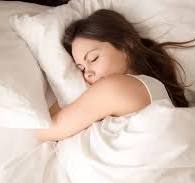
Getting a good night’s rest can sometimes feel impossible, especially for those who are concussed! At NCX Brain Recovery, many patients experience changes in sleep due to concussions and post concussion syndrome. We have created a list of to-do’s to improve your sleep hygiene. We hope you enjoy:
Be consistent in your bedtime and wake up time (especially wake up time) as this can help reset your sleep clock.
Dim the lights or use low light 1-2 hours before bed.
Spend 5-15 minutes or more outside in the morning getting early light and in the evening getting diminishing sunset light (this will help establish circadian rhythms for deep sleep).
Stay off screens/electronics for 1-2 hours before bed (2 hours is ideal).
Limit caffeine intake to the hours of 10am and 2pm. Caffeine is still active in the body at night if you have caffeine in the afternoon/evening. Even if you can fall asleep easily, the caffeine can still affect your sleep cycle and quality of sleep.
Avoid eating a couple of hours before going to bed. However, a small snack close to bedtime is better than being too hungry.
Create and stick to a routine that helps you relax and wind down. Some examples are reading, meditating, listening to soft music, etc.
Shift your focus from “I have to go to sleep now” to “I get to wind down and rest.” Sleep comes more easily as we stop fixating on it and focus our attention on other things.
As you make an effort to improve your sleep, remember that an occasional night of difficulty falling asleep or getting poor sleep is ok. Don’t let it be a source of stress. You can always try again the next night. We hope you find these tips helpful. When a brain is in a concussed or post-concussive state, even these steps above can be challenging. The best thing you can do is get your brain right. Give us a call to chat about your concussion and what you can do today to start on your journey to recovery.
Sincerely,
Justin Pope, MOT

Sources:
-Center for Disease Control and Prevention: Tips for better sleep https://www.cdc.gov/sleep/about_sleep/sleep_hygiene.html
-Huberman Lab: Master your sleep and be more alert when awake https://www.hubermanlab.com/episode/master-your-sleep-and-be-more-alert-when-awake
-National Institute of Health: Effects of light on human circadian rhythms, sleep and mood https://www.ncbi.nlm.nih.gov/pmc/articles/PMC6751071/
-Nature: The impact of daily caffeine intake on nighttime sleep in young adult men https://www.nature.com/articles/s41598-021-84088-x
-Sage Journals: Regular Caffeine Intake Delays REM Sleep Promotion and Attenuates Sleep Quality in Healthy Men.
We collect cookies on our site to enhance user experience and improve the quality of our site. We do not have third-party ads on our site, and will never sell your information.